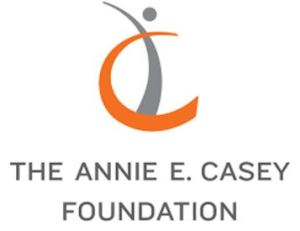
The Annie E. Casey Foundation: Comprehensive Policy Reforms Needed to Support Youth and Young Adults Transitioning from Foster Care
With a national moratorium on youth aging out of foster care set to expire on Sept. 30 — leading to thousands of young people facing eviction from the foster care system and further uncertainty — the Annie E. Casey Foundation is calling on state and federal policymakers to urgently reform and expand the resources, tools and guidance that young people need thrive as they move into adulthood.
The Foundation has released From COVID-19 Response to Comprehensive Change: Policy Reforms to Equip Youth and Young Adults in Foster Care to Thrive, a policy brief calling for broad and immediate reforms. The brief calls on policymakers to build a reform agenda that draws on the temporary pandemic-relief measures enacted in the Supporting Foster Youth and Families through the Pandemic Act and specifically urges Congress to pass legislation introduced in the House of Representatives to extend this emergency aid that was appropriated during the pandemic.
Nearly 900,000 youth and young adults are eligible for this critical emergency relief and when it expires hundreds of thousands of young people across states will no longer be eligible to receive extended foster care, housing assistance or other well-being supports under this temporary programming.
Rather than being allowed to expire in the coming months — some as soon as next week — these emergency measures should serve as building blocks to a comprehensive approach to healing, family stability and economic security.
Casey recommends comprehensive reforms that would enable child welfare agencies and caseworkers to better support youth and young adults in building lasting connections with family and supportive adults before they reach the age of 18, allow young adults to continue receiving services through age 26 and access to age-appropriate support to help bridge their journey from foster care into adulthood. The Foundation also calls for greater investment in approaches aimed at reducing the harmful disparities that exist for many Black and Latino youth — who are overrepresented in the child welfare system and have a higher chance of experiencing homelessness, living in poverty, being unemployed and facing other challenges after they age out of foster care compared to their white peers.
From COVID-19 Response to Comprehensive Change was developed in consultation with young people who have experienced foster care. One of its chief recommendations is that policies governing the system be developed in partnership with youth and families.
“Temporary federal relief provided during the COVID-19 pandemic has been critical, but the lack of adequate service and support infrastructure across states has been a challenge in realizing its potential,” said Todd Lloyd, senior policy associate with the Casey Foundation. “Congress must ensure states are positioned and accountable to a comprehensive and ongoing approach to serving these youth and young adults if they are to thrive. The potential of such an approach is within reach and swift action by Congress to extend emergency relief could serve as a down payment.”
Each year more than 23,000 youth age out foster care without being reunited with their families or connected with other permanent relationships. These young adults face a much steeper climb to adulthood than their peers who have supportive networks. The consequences of being without family or economic resources makes them more likely to struggle with unmet health needs, school and work pursuits, and they are more likely to experience homelessness and poverty.
Policy recommendations in the brief include:
- Preserve and nurture families by focusing on preventing family separation, including for expectant and parenting youth in foster care; nurturing healthy family connections; and increasing opportunities for youth in foster care to be placed with relatives or chosen family.
- Ensure child welfare agencies prioritize the unique needs of adolescents by creating adolescent youth divisions. From ages 14 through 26, young people are experiencing a period of rapid growth and development. They need supportive relationships that meet their individual needs and enable them to lead healthy and fulfilling lives.
- Improve access to stable housing and support by making foster care available to youth until age 21 in all states.
- Create pathways to success by expanding access to and improving the quality of the Chafee program’s supportive services to young people to age 27. The John H. Chafee Foster Care Program for Successful Transition to Adulthood provides flexible federal funding to states, territories and Native American tribes to support current and former foster youth in their transition to adulthood. States can use Chafee funding to provide support such as educational assistance, career exploration, mentoring and preventive health activities, among other services
From COVID-19 Response to Comprehensive Change urges greater investment in approaches to reduce the persistent and harmful disparities that exist for all young people in foster care:
- Low-income families of color are disproportionately the focus of child protective services investigations for reasons including historic systemic racism and disadvantage, higher poverty rates and greater exposure to mandated reporters.
- Black youth are overrepresented in foster care relative to the general population. They are twice as likely to enter foster care as white youth, despite studies that show the occurrence of abuse or neglect is lower for Black families than it is for white families.
- Youth of color who enter foster care have disparate caregiving experiences. They receive fewer familial visits, fewer contacts with caseworkers, fewer written case plans and fewer developmental or psychological assessments compared with white youth.
RELEASE INFORMATION
From COVID-19 Response to Comprehensive Change will be available Sept. 23 at 12:01 a.m. EDT at www.aecf.org.
ABOUT THE ANNIE E. CASEY FOUNDATION
The Annie E. Casey Foundation is a private philanthropy that creates a brighter future for the nation’s children and youth by developing solutions to strengthen families, build paths to economic opportunity and transform struggling communities into safer and healthier places to live, work and grow.
Help us Continue to tell OUR Story and join the AFRO family as a member – subscribers are now members! Join here!
The post WITH PANDEMIC RELIEF SET TO EXPIRE — CREATING UNCERTAINTY FOR YOUTH AGING OUT OF FOSTER CARE — FOUNDATION URGES PERMANENT REFORMS appeared first on AFRO American Newspapers .











